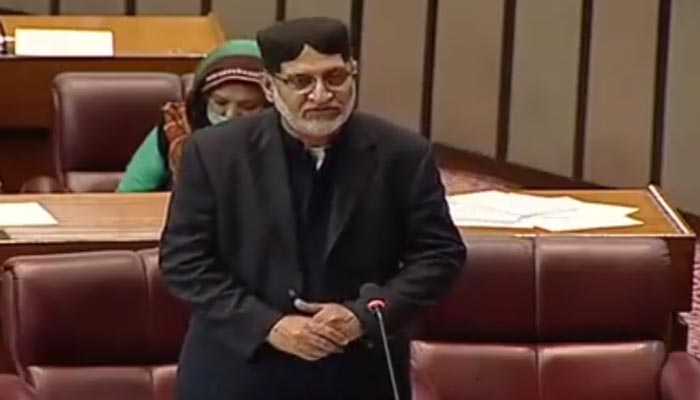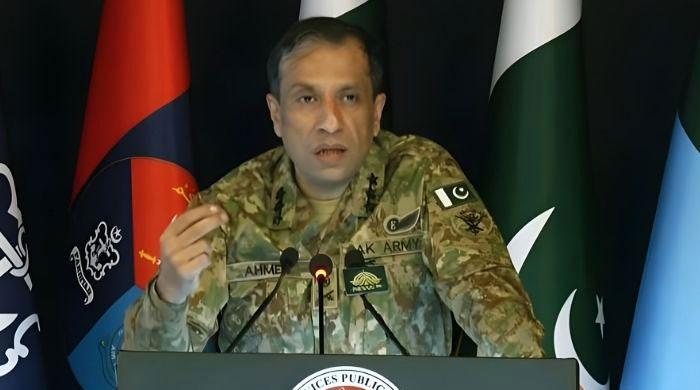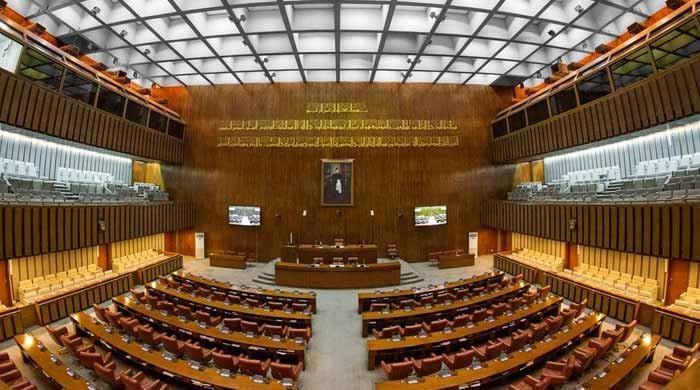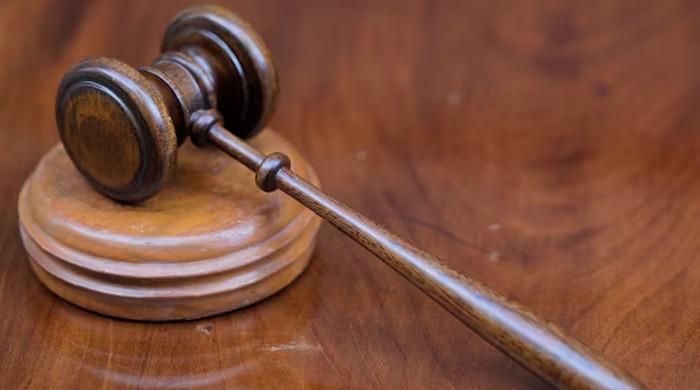Akhtar Mengal warns of parting ways with coalition govt over Foreign Investment Act
JUI-F Senator Kamran Murtaza says that Foreign Investment Bill has been passed forcefully and with deceit
December 14, 2022

- Possibility of separation if concerns regarding bill not addressed: Mengal.
- He says govt takes investors into confidence rather than parliament.
- JUI-F's senator says has been passed forcefully and with deceit.
Balochistan National Party-Mengal (BNP-M) Chairman Akhtar Mengal has signalled that he may separate his party from the incumbent PML-N-led government at the centre, Geo News reported Tuesday.
Speaking during a Geo News programme "Capital Talk", Mengal showed reservations about the Foreign Investment (Promotion and Protection) Act, 2022 to promote and protect foreign investment in relation to the Reko Diq project.
Mengal, whose party is one of the allies of the coalition government, said that there is a possibility of separation if concerns regarding the bill are not addressed.
The BNP-M leader said that the coalition government, instead of taking allies into confidence, takes investors into confidence. "More importance is given to the companies instead of the parliament. We will have to think about the basis of our unity," he added.
Expressing his displeasure, Mengal said that a CEO of a company is respected more than the allies. He added that his province was "looted" by everyone. "The resources change people's lives, but it is Balochistan's misfortune that the way the resources were discovered there, they became a disaster for the people," he added.
During the programme, another ally of the government Jamaat-e-Islami-Fazl's (JUI-F) Senator Kamran Murtaza said that the Foreign Investment Bill has been passed forcefully and with deceit which is a threat to Pakistan.
Senate okays Foreign Investment Bill
The upper house of parliament on December 12 approved the Foreign Investment (Promotion and Protection) Bill, 2022 in the midst of protests by opposition benches.
In light of the approval, the Pakistan government would sign the deal on December 15.
President Arif Alvi also signed the Foreign Investment Promotion and Protection Bill 2022 on Tuesday turning it into an act. The law, which was already passed by two houses of parliament on Monday, is aimed at giving protection to foreign investments in the country.
The statement from the Prime Minister's House said the Ministry of Petroleum and other concerned ministries were also directed to go ahead with signing the Reko Diq deal on December 15.
“The federal cabinet asked secretary/additional secretary petroleum under Rules of Business 1973 to sign the deal on behalf of the Pakistan government,” the cabinet decided. The statement said that the cabinet was apprised that a Presidential Reference under Article 186 was filed to secure legal opinion and the Supreme Court on December 9, 2022 declared that process of reorganisation of the Reko Diq project funding plan was transparent. The apex court also observed that the agreements which are being signed in this connection are also as per law.
The cabinet was also informed that it was decided with the coalition that legislation made in parliament was confined only to the Reko Diq deal. The meeting also okayed the regulatory framework for the Reko Diq Project Company.
The meeting also constituted a five-member committee, which would meet leaders of the coalition parties to remove their reservations. It was also decided certain amendments would also be made in consultation with stakeholders.
The five-member committee comprises Law Minister Azam Nazeer Tarar, Finance Minister Senator Ishaq Dar, Minister for Trade Syed Naveed Qamar and Minister for Economic Affairs Sardar Ayaz Sadiq.
In case the agreement is not signed by December 15, Pakistan would have to pay four million dollars per day as interest on the 5.9 billion dollars penalty imposed by the International Center for Settlement of Investment Disputes on July 12, 2019.









